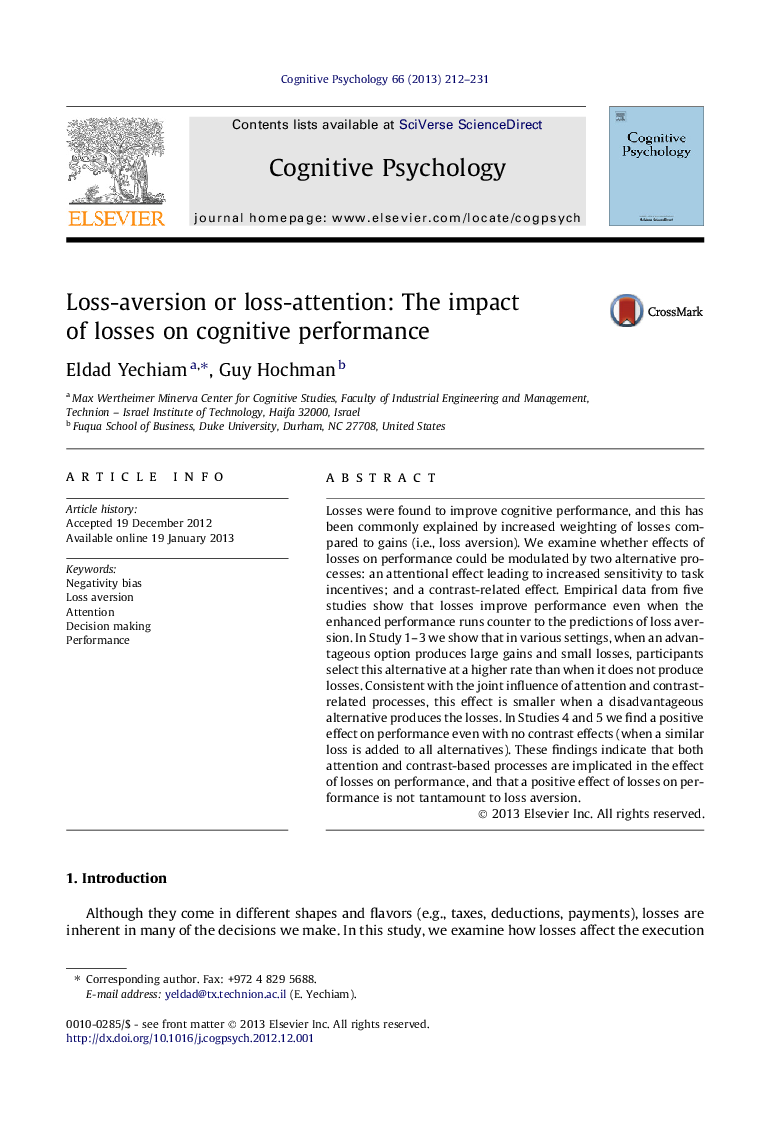| کد مقاله | کد نشریه | سال انتشار | مقاله انگلیسی | نسخه تمام متن |
|---|---|---|---|---|
| 916892 | 918997 | 2013 | 20 صفحه PDF | دانلود رایگان |

Losses were found to improve cognitive performance, and this has been commonly explained by increased weighting of losses compared to gains (i.e., loss aversion). We examine whether effects of losses on performance could be modulated by two alternative processes: an attentional effect leading to increased sensitivity to task incentives; and a contrast-related effect. Empirical data from five studies show that losses improve performance even when the enhanced performance runs counter to the predictions of loss aversion. In Study 1–3 we show that in various settings, when an advantageous option produces large gains and small losses, participants select this alternative at a higher rate than when it does not produce losses. Consistent with the joint influence of attention and contrast-related processes, this effect is smaller when a disadvantageous alternative produces the losses. In Studies 4 and 5 we find a positive effect on performance even with no contrast effects (when a similar loss is added to all alternatives). These findings indicate that both attention and contrast-based processes are implicated in the effect of losses on performance, and that a positive effect of losses on performance is not tantamount to loss aversion.
► We evaluate different models for the effect of losses on cognitive performance.
► We find that losses increase performance even when associated with high performance.
► Losses increase performance even when all alternatives produce the same loss.
► These effects cannot be solely attributed to loss aversion.
► Increased attention and contrast play an important role in the effect of losses.
Journal: Cognitive Psychology - Volume 66, Issue 2, March 2013, Pages 212–231